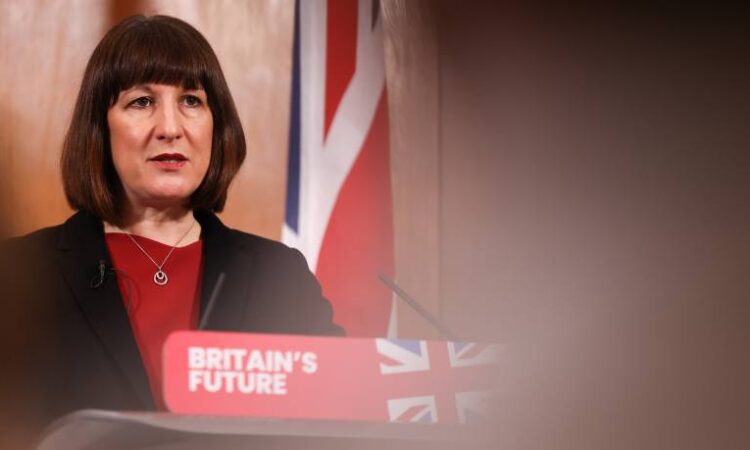Fund managers says Labour could raise money from bond markets; Investment in UK ‘significantly’ behind G7 peers

Fund managers suggest that a Labour government could raise extra money from bond markets without a significant market backlash, the Financial Times reported.
While shadow chancellor Rachel Reeves has pledged to retain the government’s commitment to trimming the UK’s debt-to-GDP figure in the next parliament, fund managers told the paper that scope remains for borrowing to fund measures to stimulate the economy.
“If Labour borrows to invest, markets will not worry about it,” said Tom Roderick, portfolio manager at hedge fund firm Trium Capital. “What markets are more worried about is borrowing to cut taxes, or increase social security payments, which doesn’t sound that likely.”
The Labour party has been at pains to reassure markets there will be no repeat of the unfunded changes contained in former prime minister Liz Truss’s infamous “mini” Budget of 2022, which triggered a run on the pound and a spike in government borrowing costs.
—
The Treasury is to receive a boost after Octopus Energy pledged to repay £3bn worth of state support related to its takeover of ailing rival Bulb by the end of September.
The takeover came following the temporary nationalisation of Bulb in 2021, which collapsed due to soaring energy prices. Bulb was placed into a special administration regime, and was sold the next year to Octopus.
The bailout was at one point estimated to be worth £6bn, but has subsequently halved due to falling energy prices.
“We have already started to repay the government and it should all be complete by September,” the company told The Financial Times.
—
Total investment from government and businesses in the UK is “significantly” behind that of its G7 peers, according to the Institute for Public Policy Research, which has called on the next government to commit to an industrial strategy in order to boost investment by private companies.
The think-tank said that data from the OECD shows that the UK has had the lowest level of investment in the G7 for 24 of the past 30 years, and that its current investment of 18.3 per cent of national income was “significantly” behind that of the US — the next worst performer — at 21.2 per cent.
“The UK’s dire productivity performance since the great financial crisis of 2008 is, to a large extent, the single biggest driver of our dire living standards,” the IPPR said.
Both the Conservative and Labour party have committed to reducing investment over the next parliamentary term, it added.
—
The Bank of England held interest rates at 5.25 per cent on Thursday, the day after the Office for National Statistics said that inflation had fallen to the central bank’s target of 2 per cent for the first time in three years.
The fall in inflation was seized upon by Prime Minister Rishi Sunak as “very good news”, and proof that the government had restored economic stability, enabling the incoming government to deliver tax cuts.
The BoE signalled a cut in interest rates was possible as soon as its next meeting in August, subject to inflation staying low, with meeting minutes suggesting the decision to hold rates was “finely balanced”.
The European Central Bank and the Bank of Canada became the first major central banks to cut rates earlier this month.
—
Shadow chancellor Rachel Reeves has suggested that private equity executives prepared to put their own capital at risk would be exempt from paying income tax on “carried interest” earnings, a key proposal in Labour’s election manifesto.
Charging income tax — as opposed to the lower-rate capital gains tax — on carried interest payments received by private equity executives was one of the most eye-catching plans of the manifesto, launched last week.
“Private equity is the only industry where performance-related pay is treated as capital gains. Labour will close this loophole,” the manifesto said.
Yet in an interview with the Financial Times, Reeves said that “if you are putting your own capital at risk it is appropriate that you pay capital gains tax”.
Reeves said that UK private equity bosses currently invested only “tiny” sums of their own capital compared with other jurisdictions where favourable tax treatment is granted.






